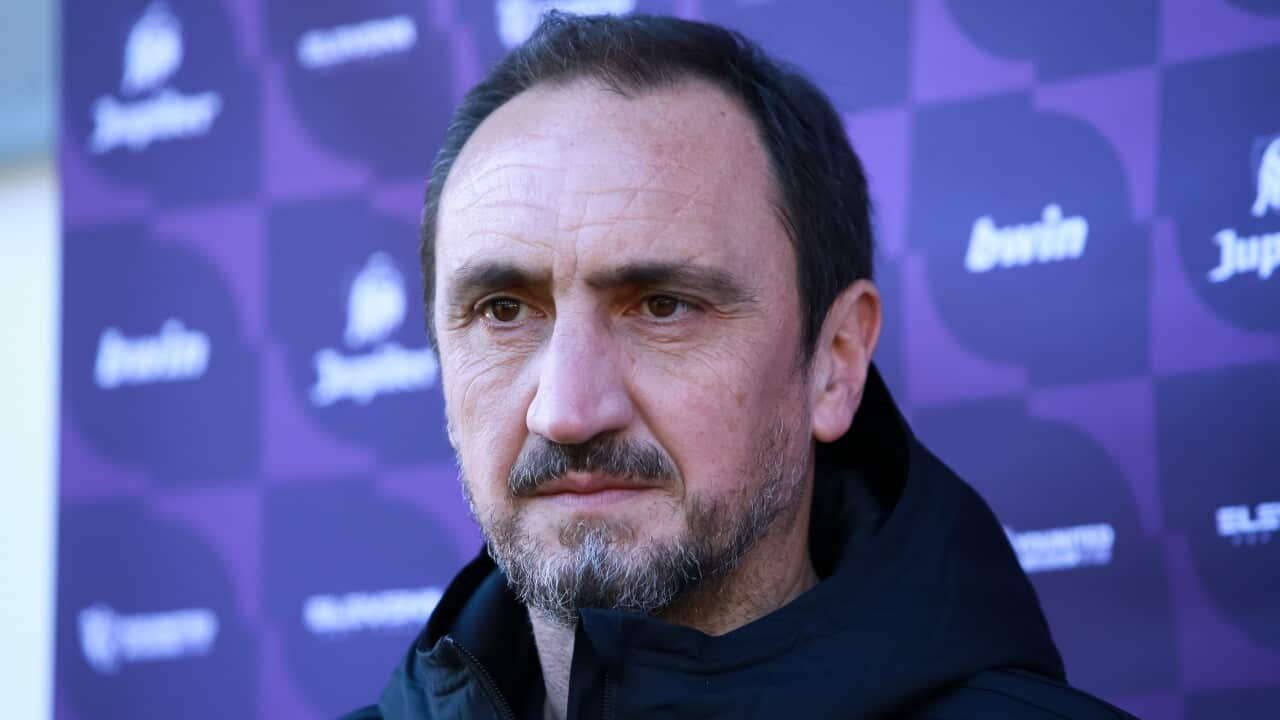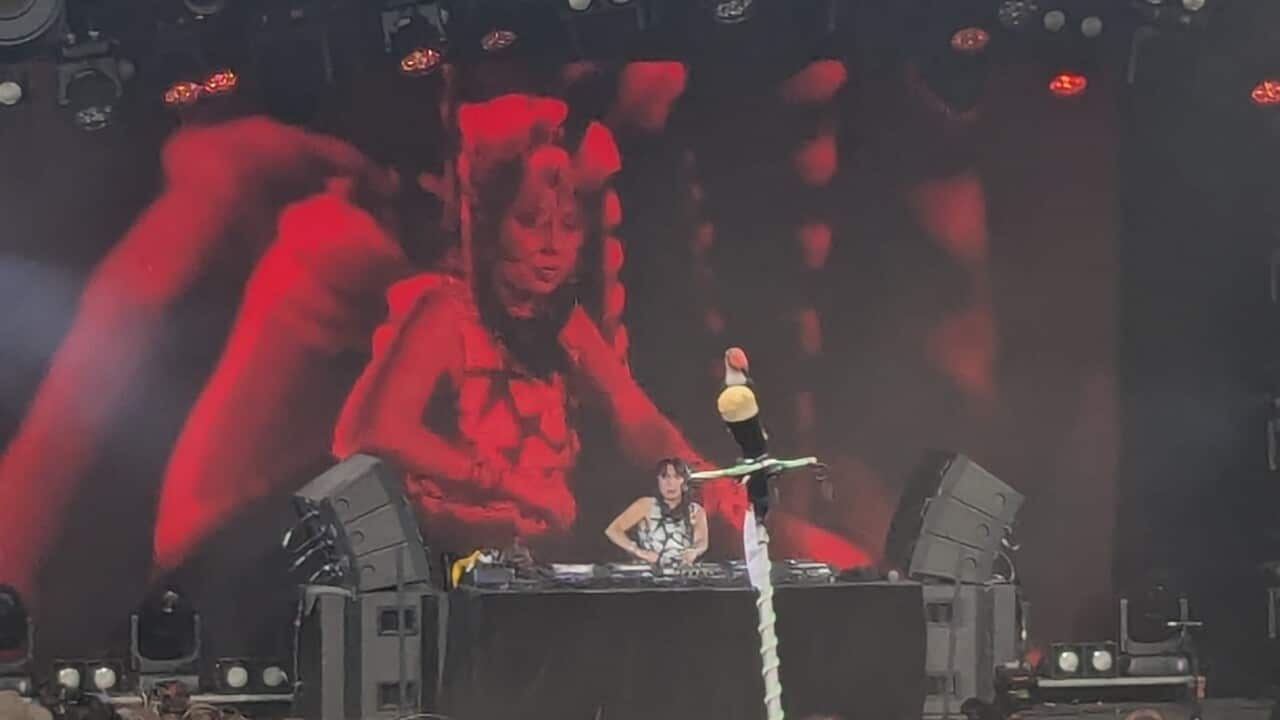KEY POINTS
- How he experienced the first hours of the bloody conflict
- What he said about his players who want to fight
- What is his future at the Israeli club
The horror of the war that has resulted in over 1,100 deaths was described to SBS Greek by Greek Australian coach Michael Valkanis.
The Greek-Australian coach of Hapoel Tel Aviv described how he and his 16-year-old son experienced the horrors of war.
"The sirens started to go off, alarmed when they want to communicate to the people that there is a situation that is difficult. I was in bed, I woke up, we were going to have a match in the afternoon, I thought it would pass, it's ten minutes and it will pass. Because the sirens go off for a little while and then this alarm goes off. This time it lasted 2-3 hours and during those 2-3 hours people were coming out to the balconies to see what was going on. And after almost two hours the bombing started and they were sounding loudly, then we knew that something more serious was happening," he said.
Mr Valkanis also spoke of the effort his team made to secure the departure of foreign football players and the non-Israeli coaching staff from the country, with him and his son fleeing to Greece just an hour and a half before the Israeli government declared a no-fly zone.
"We managed to leave around 4:30, at that time we could hear bombing. When we left we felt safer and we found out at 6pm all other flights were cancelled. Once we got to Athens then we realised what we had been through all day. We hadn't thought about what was happening because we were trying to leave, to pack our bags, to find a plane. With the adrenaline rush we had, we didn't think about what was happening and what the situation was," he said.
At the same time, he spoke about his future with Maccabi Tel Aviv, when the dust of war that has covered everything is removed.
"At the moment I haven't thought about wanting to leave, because I have become very attached to the team. We made a start to change everything, not only the team but also the culture. It's a project that I love very much, because I can leave my stamp on it. I don't think at all that I won't go back again. Especially with the friendships I've made, with new partners that I feel like I've worked with all my life and with the people who have embraced me in Israel and love me, it's very hard to think that I don't want to go back," he said.
Listen to the full interview with Michael Valkanis by clicking play on the podcast of the main photo.




